Joshua Wong Leads Young Hong Kong Trio Facing Jail
Leading dissident Joshua Wong is among three young Hong Kong activists who will be sentenced on Wednesday for taking part in last year's democracy protests as a crackdown on Beijing's critics gathers pace.
Hong Kong was convulsed by seven straight months of huge and often violent rallies in which millions took to the streets.
Beijing has refused demands for universal suffrage and authorities have pursued democracy supporters with criminal cases and a tough new security law.
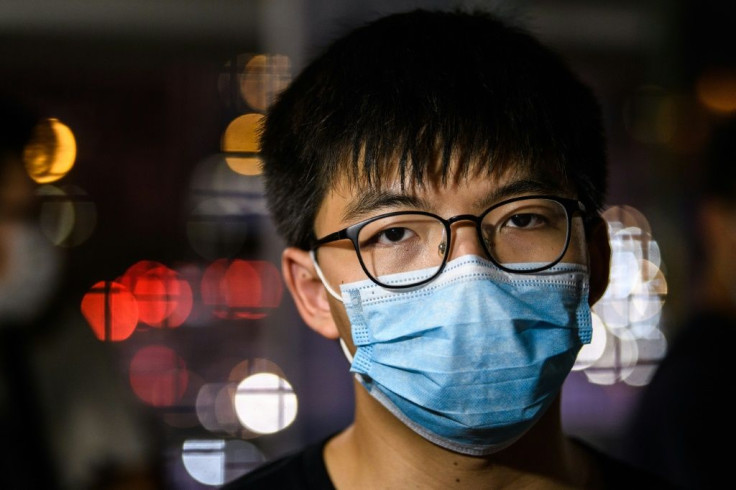
The tactics have stifled the movement and restored a semblance of calm. But the finance hub remains deeply polarised with many still seething against Beijing's growing hold on the semi-autonomous city.
Wong, 24, was prosecuted alongside fellow activists Ivan Lam and Agnes Chow over a protest which took place last summer outside the police headquarters.
The three pleaded guilty to various charges including inciting an unlawful assembly and were remanded into custody pending Wednesday's sentencing.
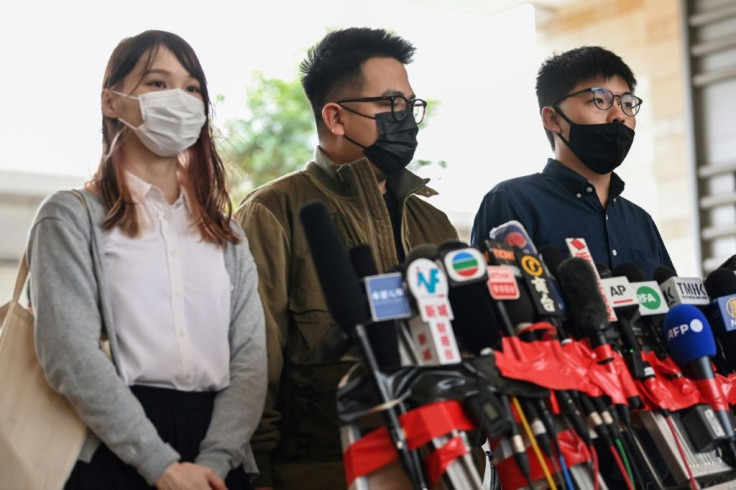
They face up to three years in jail.
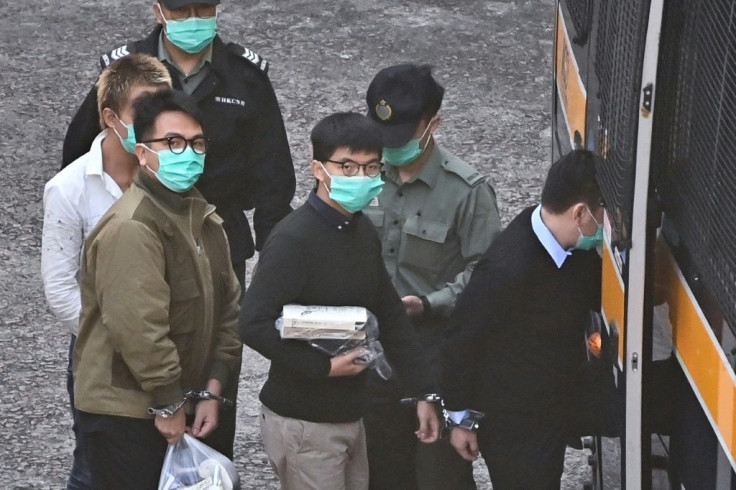
Despite his youth, Wong has already spent time in prison for leading democracy protests and has said he is prepared for more time behind bars.
"All these pains and sufferings would only strengthen our courage and conviction for democracy and justice," read a post on his verified Twitter account on Monday alongside a letter from Wong saying he was being held in solitary confinement ahead of sentencing.
"Cages cannot lock up souls."
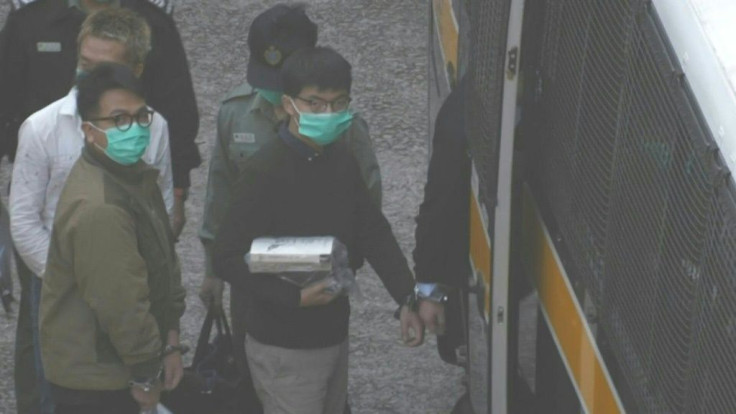
Wong, Chow and Lam, 26, joined Hong Kong's pro-democracy movement when they were in their teens.
All three organised successful rallies in 2012 against plans to make Hong Kong's education system more "patriotic".
And they played prominent roles two years later in the "Umbrella Movement" -- a 79-day peaceful occupation by a largely student-led campaign calling for universal suffrage.
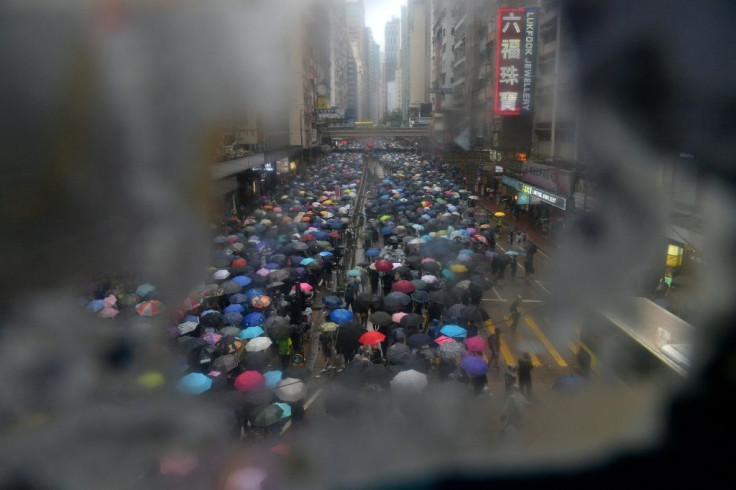
Leading figures from those protests, including Wong, were jailed and the democracy movement struggled in the years after.
But it exploded onto the streets once more in June 2019, sparked by plans to allow extraditions to mainland China and its opaque legal system.
Millions took to the streets over the next seven months in a deliberately leaderless campaign mostly organised via social media calling for greater democracy and police accountability.
Riot police unleashed thousands of rounds of tear gas and rubber bullets and were frequently filmed using batons to beat arrested demonstrators.
Small groups of hardline activists resorted to rocks, petrol bombs and widespread vandalism.
Figures like Wong and Chow joined some of the protests and also used their celebrity status over the years to lobby for international sanctions, a move that infuriated Beijing with state media casting them as traitors.
Earlier this summer, Beijing imposed a broad security law which ramps up its direct control over the city and outlaws certain political views.
More than 10,000 people have been arrested over the last 18 months and most of Hong Kong's leading activists and opposition figures face prosecution.
"The suppression is not only targeting prominent figures. It comes from all directions and is going after all kinds of people," Isaac Cheng, a friend of Wong's and former vice chairman of their now-defunct political party Demosisto, told AFP.
Chow is being investigated under the security law for allegedly "conspiring with foreign forces" by pushing for sanctions.
Beijing says security has been restored.
But Cheng described a sense of despondency among many younger Hong Kongers.
"We thought this place belongs to us but it now turns out to be a crime if a student thinks differently from the government," he said.
© Copyright AFP 2024. All rights reserved.





















